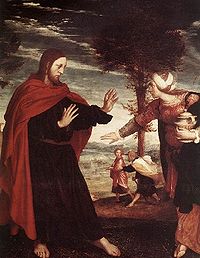
In response to “Thoreau, Frye, and Same-Sex Desire“:
There’s this from Frye’s 1949 diary:
University lecturing is not teaching but a form of intellectualized preaching. You can go into all the world and preach the gospel, but if you try to teach any more than about twelve disciples you’ve had it. Teaching relates two individuals through Socratic love, which has to be homosexual. I can’t really teach a woman, because, being a woman, the things organic to her learning process are female, and shut me out. All I could do would be to identify myself with her animus, which puts me, as I’ve discovered and elsewhere remarked, in a hell of a spot. To teach a boy is to form his character, which means partly to unite him to the males of the tribe. It also involves the sort of love which sees with complete clarity what the boy’s character is: you can’t, that is, teach a frivolous person in the way you would teach a preternaturally solemn one. I’m not a teacher according to this line of thought; and I wonder if it’s possible without some physical interest in men, or sublimation of it. Even Jesus had a beloved disciple, as Marlowe pointed out. I can trace no such interest in myself.
The Marlowe reference: “That St John the Evangelist was bed-fellow to Christ and leaned always in his bosom; and that he used him as the sinners of Sodoma” (Richard Baines, “A Note Concerning the Opinion of One Christopher Marlowe, Concerning His Damnable Judgment of Religion and the Scorn of God’s Word,” Christopher Marlowe, Complete Poems and Plays [London: Dent, 1976], 513). The so-called “Baines’s Note” is a series of opinions on religion, said to have been Marlowe’s but apparently penned by Baines in an effort to bring Marlowe before the Court of the Star Chamber.
And these two passages from the Late Notebooks:
Tillich on the miserable reality of the concrete churches: when I went to church in Montreal with Lorna that jackass disrupted the whole feeling of the service by braying about homosexuals. Before the service, I met a woman I’d never seen before who pecked out of me in two minutes the fact that I had no earned doctorate. Malice, like other pacts with the devil, certainly gives one preternatural perceptions, up to a point.
Eros Regained starts with the homosexual refined Jesus lying on the bosom of a male beloved disciple, trying to get away from his mother but still so hung up sexually that he insisted his father was not his father and that his mother was a virgin, rescuing a bride symbolically but saying “don’t touch me” as his last words to a woman. [The notion of the homosexual or androgynous Jesus is repeated here and there in Frye’s writings––scores of times.]

What did Frye mean by the gay/androgynous Jesus? I understand it comes from the gospel of John but I don’t understand what Frye is getting at. I have similar questions about Blake’s use of hermaphroditic figures. Is the point that the divine is not any particular gender? In the quoted passage Frye is associating the gay Jesus with sexual hang ups, sexual repression. Frye was obviously of a different generation. If he associated homosexuality with sexual repression, I’d say this was one of the rare areas of his thought that has dated almost to the point of being incomprehensible now.
Well, Frye also emphasizes that the homosexuality is asexual in this particular mythic quadrant of his doodle (West-northwest on the compass, If I’m not mistaken), the Adonis quadrant. Notice, in contrast, that in the passage I quoted from Words with Power it is clear that Socrates’s love for Alcibiades is sexual, even if a repressed Christian tradition tries to cover it over in terms of an asexual wish for Alcibiades’ welfare: of course it is both sexual love and a teacher’s love in Plato. As Bob points out, the homosexual but asexual Jesus is a recurrent theme in the 3rd notebook, which might imply that it is not the homosexuality which is hung up, repressed, or neurotic, but the sexual expression of it: in other words, if Jesus wasn’t so repressed, his homosexual desires would express themselves sexually.
There is another passage on homosexual love in Frye, I believe in the notebooks somewhere where he makes the point that homosexual desire is as natural an expression of sexual love as heterosexual desire, even if he, Frye, doesn’t happen to be inclined that way. I’m still looking for it.